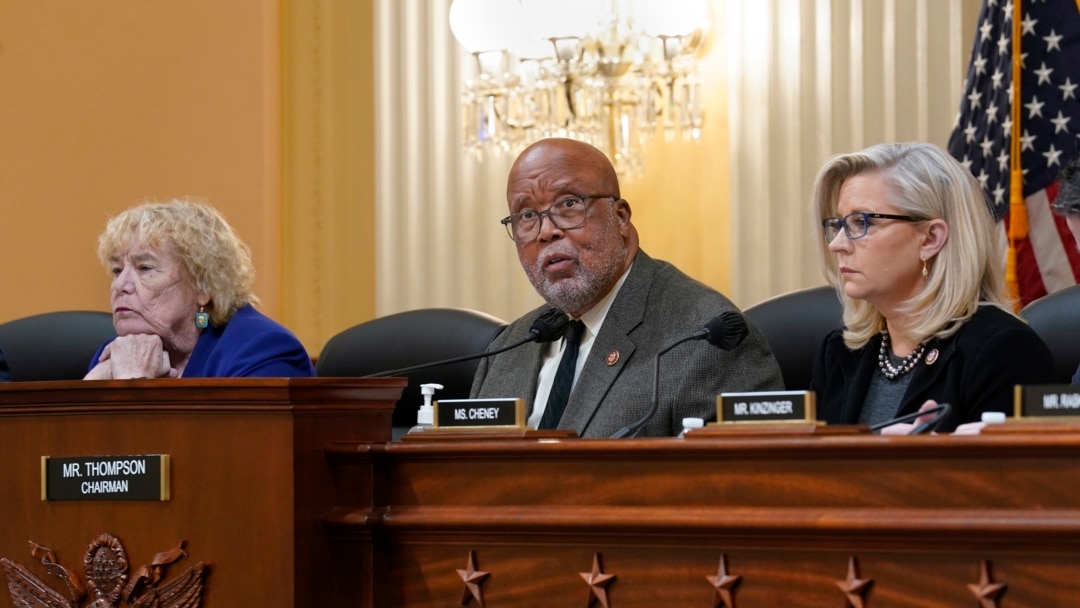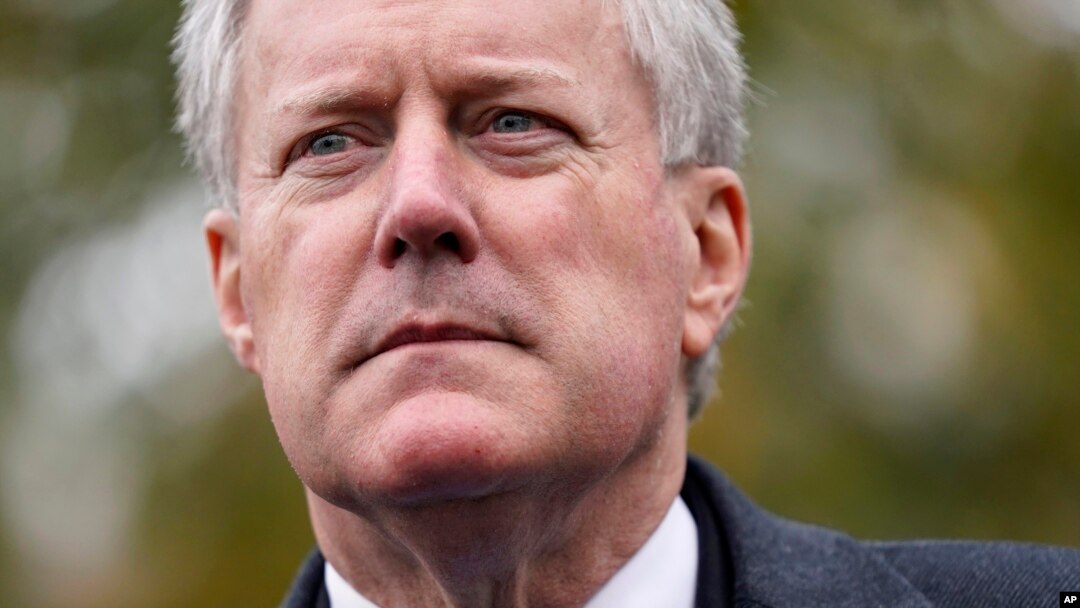The House committee investigating the Jan. 6 Capitol insurrection has "no choice" but to move forward with contempt charges against former Trump White House chief of staff Mark Meadows now that he is no longer complying with a subpoena, the panel's chairman said Wednesday.
In a letter to Meadows' attorney, Rep. Bennie Thompson, D-Miss., said that Meadows has already provided documents to the committee, including personal emails and texts about former President Donald Trump's efforts to overturn his 2020 election defeat. Yet Meadows did not show up Wednesday for a scheduled deposition after his lawyer, George Terwilliger, told the panel that he was ending his cooperation.
Thompson noted in the letter that Meadows has also published a book, released this week, that discusses the Jan. 6 attack.
"That he would sell his telling of the facts of that day while denying a congressional committee the opportunity to ask him about the attack on our Capitol marks an historic and aggressive defiance of Congress," Thompson said in a letter to Terwilliger.
The House has already voted to hold longtime Trump ally Steve Bannon in contempt after he defied a subpoena, and the Justice Department indicted Bannon on two counts.
The documents that Meadows has already provided to the panel, Thompson wrote, include communications from around the time of the presidential election and before the insurrection and involve White House efforts to overturn Joe Biden's election victory. One email outlines what Thompson characterized as a "direct and collateral attack" that would have involved appointing an alternate slate of electors.

FILE: House Jan. 6 Select Committee Chairman Bennie Thompson, D-Miss., center, flanked by Rep. Zoe Lofgren, D-Calif., left, and Vice Chair Liz Cheney, R-Wyo., meet Dec. 1, 2021, at the Capitol in Washington.
According to the letter, Meadows provided the committee in November with personal emails and backed up data from his personal cellphone, including text messages. Those thousands of documents included an email dated Nov. 7 — the day Biden was declared the winner — that Thompson described as "discussing the appointment of alternate slates of electors as part of a 'direct and collateral attack' after the election." He did not say who sent the email or give further details.
The documents also included an email regarding a 38-page PowerPoint briefing titled "Election Fraud, Foreign Interference & Options for 6 JAN," Thompson wrote, that was intended to be shared on Capitol Hill. Thompson did not give any other details about the email but said it was dated Jan. 5, the day before hundreds of Trump's supporters violently breached the Capitol and interrupted the certification of Biden's victory.
A separate Nov. 6 text exchange between Meadows and an unidentified member of Congress, Thompson wrote, was "apparently about appointing alternate electors in certain states as part of a plan that the member acknowledged would be 'highly controversial,' and to which Mr. Meadows apparently said, 'I love it.'"
Also included in the documents, according to Thompson: A Jan. 5 email about having the National Guard on standby the next day, an "early 2021 text message exchange" between Meadows and an organizer of the rally held the morning of Jan. 6, when Trump told his supporters to "fight like hell," and "text messages about the need for the former president to issue a public statement that could have stopped the Jan. 6 attack on the Capitol."
Terwilliger did not immediately respond to a request for comment on the letter.
Meadows' decision to stop complying with the committee came after he had initially agreed to the deposition and after Terwilliger said the committee was open to allowing him to decline some questions based on the executive privilege claims that Trump has made in an ongoing court case.
Terwilliger wrote the committee this week, however, that a deposition had become "untenable" because the Jan. 6 panel "has no intention of respecting boundaries" around questions that Trump claims are off-limits. Terwilliger also said he learned over the weekend that the committee had issued a subpoena to a third-party communications provider that he said would include "intensely personal" information about Meadows.
"As a result of careful and deliberate consideration of these factors, we now must decline the opportunity to appear voluntarily for a deposition," Terwilliger wrote in the letter.
In his response, Thompson confirmed the subpoenas to a third party but said they should not affect Meadows' testimony.


